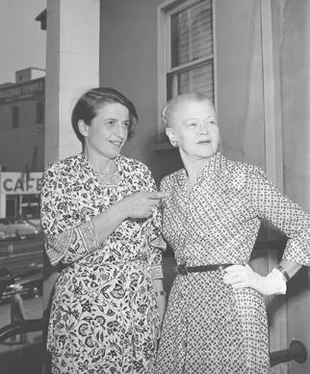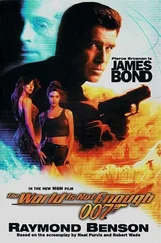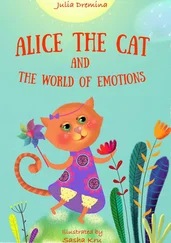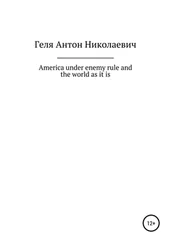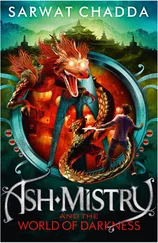Anne Heller - Ayn Rand and the World She Made
Здесь есть возможность читать онлайн «Anne Heller - Ayn Rand and the World She Made» весь текст электронной книги совершенно бесплатно (целиком полную версию без сокращений). В некоторых случаях можно слушать аудио, скачать через торрент в формате fb2 и присутствует краткое содержание. Жанр: Биографии и Мемуары, на английском языке. Описание произведения, (предисловие) а так же отзывы посетителей доступны на портале библиотеки ЛибКат.
- Название:Ayn Rand and the World She Made
- Автор:
- Жанр:
- Год:неизвестен
- ISBN:нет данных
- Рейтинг книги:5 / 5. Голосов: 1
-
Избранное:Добавить в избранное
- Отзывы:
-
Ваша оценка:
- 100
- 1
- 2
- 3
- 4
- 5
Ayn Rand and the World She Made: краткое содержание, описание и аннотация
Предлагаем к чтению аннотацию, описание, краткое содержание или предисловие (зависит от того, что написал сам автор книги «Ayn Rand and the World She Made»). Если вы не нашли необходимую информацию о книге — напишите в комментариях, мы постараемся отыскать её.
Ayn Rand and the World She Made — читать онлайн бесплатно полную книгу (весь текст) целиком
Ниже представлен текст книги, разбитый по страницам. Система сохранения места последней прочитанной страницы, позволяет с удобством читать онлайн бесплатно книгу «Ayn Rand and the World She Made», без необходимости каждый раз заново искать на чём Вы остановились. Поставьте закладку, и сможете в любой момент перейти на страницу, на которой закончили чтение.
Интервал:
Закладка:
Most important, the father was openly supportive of his daughter’s brilliant analytical intelligence, drive, and vocation as a writer. He must often have encouraged her as he did in the late 1920s, when he wrote to her in America: “You must see clearly that you are not like everybody else and be proud of it. Eschew all doubts and continue firmly and with assurance to walk toward your goal.” She clearly returned his love and admiration. “She spoke about him with more respect than I can recall her ever speaking about anybody,” said a friend who knew Rand in the 1950s.
There was one area of conflict between the girl and her father: He opposed her chosen course of study at the university. Without asking her to give up writing, he wanted her to apply her math training and love of the scientific method to a more remunerative occupation, such as engineering. This would have been an unusual profession for an early-twentieth-century Jewish father to urge on any daughter other than Rand, who was to make it Kira’s frustrated calling in We the Living . Having grown up in the Russian Pale, he was more aware than Anna or the children of the crucial role that work and money played in protecting against the onslaughts of anti-Semitism. As Rand and her sisters grew older, he urged them to choose occupations that would always allow them to earn a living. All three chose to be artists. Natasha studied piano at Petrograd Conservatory, the nation’s most distinguished school of music, along with fellow students Igor Stravinsky, Sergei Prokofiev, and Dmitri Shostakovich and former student Pyotr Tchaikovsky. Anna approved of Natasha’s choice, unlike Rand’s, because music was a properly ladylike career. Nora, the youngest, studied to be an artist, though she later became a teacher like her mother and, finally, a graphic designer. Rand argued with her father that, as a future writer, she had to study history in order “to have a factual knowledge of man’s past” and understand philosophy in order “to achieve an objective definition of my values.” She promised him that she would one day make a living as a writer, and, as always when hard work and force of will were the deciding factors, she was right.
In her first two years at the university, a number of events took place that solidified her “sense of life” and influenced her for years to come. The first was taking a course called Ancient World Views, probably the last class taught by the distinguished professor N. O. Lossky before he was deported. The course surveyed the pre-Socratic philosophers, Plato, and Aristotle. This may sound innocuous, but not for Rand; by now, ideas of every kind and vintage earned her passionate assent or disapproval. In Lossky’s class she was dazzled by Aristotle, particularly his logical starting point of the axiomatic existence of objective reality and his belief in human reason as the only means to understand the world; for him, as for Rand, man was a rational animal. She learned to detest Plato and his mysticism, which is how she regarded the Platonic belief that the observable world is a mere shadow of ideal forms that can’t be seen; she associated this, rightly, with mystical Christianity. And she learned from Lossky an intensely dialectical method of thinking—“thinking in principles,” she called it—which helped her to construct a worldview that was radically individualistic and seemingly Western but in some ways Russian to the core.
Rand described herself in these years as solemn, even grim, and always engaged in serious discussion. She was aware that people often didn’t want to talk to her and that she was sometimes forcing conversations on her family and schoolmates. Where she had once seen laziness, indifference, or shallow-mindedness, however, she now saw envy: she grew convinced that she was actively resented, and not for her faults but for her best qualities, her virtues, as her rebellious heroes Howard Roark and John Galt would also be.
She had no known friends, but she did spend time with two maternal cousins, Vera and Nina Guzarchik, who lived above the Rosenbaum apartment. It was Vera who, while reading Friedrich Nietzsche’s philosophical novel Thus Spoke Zarathustra , remarked that Rand reminded her of Zarathustra, the German philosopher’s prophetic outlaw hero, or at least that Nietzsche had “beat me to all my ideas,” Rand recalled. The book describes the hero’s journey down a mountainside, after the death of God, to teach what he has learned to the people below. From now on, he tells the jeering masses, human beings will determine their own values and their own destinies, free of superstitious reliance on gods, conventional morality, and faith. Furthermore, people must learn to make way for the exceptional individual, the Superman of whom Zarathustra is the first example; through a “will to power” and a talent for “self-overcoming,” the Superman will establish a new morality of man.
Nietzsche’s work was popular among intellectuals in Russia at the time, especially his descriptions of master and slave psychology and of the absolute right of the superior individual to place himself in opposition to the common herd. The seventeen-year-old Rand immediately seized upon his ideas, including his call to discard old values and create new ones, his condemnation of altruism as a slave morality, and his argument for the inviolate rights of the gifted person, whose only obligation is to refine and use his gifts as he sees fit. One point, in particular, had an immediate influence on her thinking, she recalled. Until reading Nietzsche, she had assumed that in order to defend man against religion, she would have to defend all men, no matter how weak or strong; Zarathustra demonstrated “that it doesn’t have to be collective. In other words, that the species can be vindicated by one man.” She responded to his heightened language, his brilliance, his bold critique of Christianity, and his principled admiration of Jewish thought. From this point on, her major characters would be more or less overtly Nietzschean—and, because of their Superman aura, would often be wrongly seen as fascistic by her critics. It wasn’t until she was writing The Fountainhead that she was able to begin to loosen Nietzsche’s seductive hold on her imagination.
Vera’s younger sister Nina Guzarchik was the leader of a group of intellectual young people who called themselves “Uno Momento” and sometimes gathered for parties in the Guzarchik apartment. At one of these Rand met a handsome, brooding boy with whom she fell in love, the third great event of these years. His name was Lev Bekkerman, and not only did he resemble a fictional character (Cyrus), he would also become one (Leo Kovalensky, Kira’s dissolute lover in We the Living) . An engineering student at St. Petersburg Technical Institute, he was four years older than she was, and, unlike the fictional character Leo, he was Jewish. “The first time I saw him, I remember being very startled by how good-looking he was,” she recalled when she was fifty-five. “It was his looks that I liked enormously.” He had a sharp, intelligent, purposeful-appearing face, a graceful, slender body, a thick shock of hair, and light gray eyes. As with Cyrus, Hugo’s Enjolras, and Prime Minister Kerensky, “the quality I liked about him most was arrogance,” she later said. He was “like some fantastic aristocrat” in his consciousness of his attractiveness to women, his desirability, and his sense of his own worth. She learned that he shared her political views; he had once hidden in his apartment students who were being hunted by the Soviet police, or GPU, an act of bravery that she would later confer on Kira’s cousin Irina Dunaeva in We the Living .
On some of their few dates, they bought cheap seats at operettas in the silver-and-peach grandeur of the Mikhailovsky Theatre, probably including Rand’s lifelong favorite, Emmerich Kálmán’s Die Bajadere (1921). As the two sat “solemn, erect,” the Viennese music seemed to laugh and the settings bring to life a 1920s European bar and the spirit of contemporary German cabaret, as Rand noted in We the Living . Lev Bekkerman was Rand’s first flesh-and-blood infatuation, and she fell “madly and desperately” in love with him.
Читать дальшеИнтервал:
Закладка:
Похожие книги на «Ayn Rand and the World She Made»
Представляем Вашему вниманию похожие книги на «Ayn Rand and the World She Made» списком для выбора. Мы отобрали схожую по названию и смыслу литературу в надежде предоставить читателям больше вариантов отыскать новые, интересные, ещё непрочитанные произведения.
Обсуждение, отзывы о книге «Ayn Rand and the World She Made» и просто собственные мнения читателей. Оставьте ваши комментарии, напишите, что Вы думаете о произведении, его смысле или главных героях. Укажите что конкретно понравилось, а что нет, и почему Вы так считаете.
